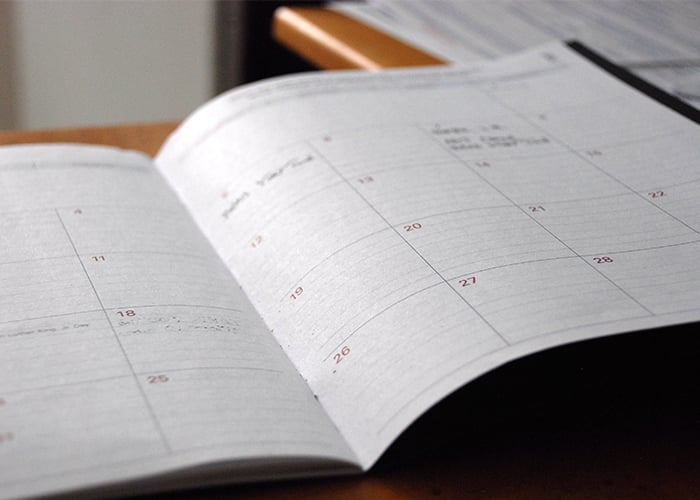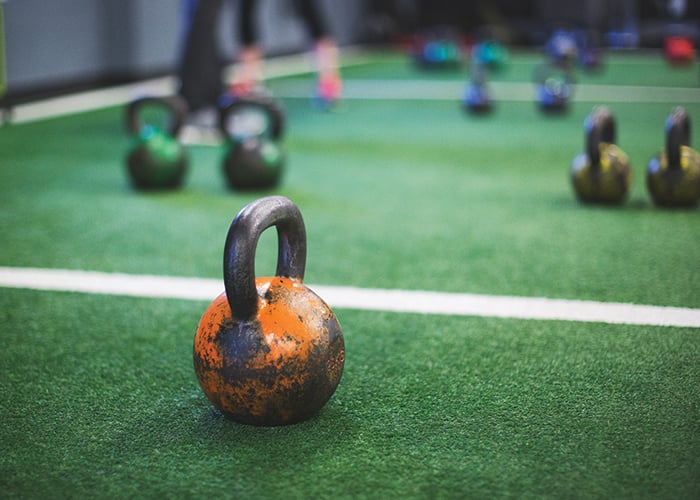Sleep for Optimal Health & Fitness – Part II
In part I of our Sleep for Optimal Health & Fitness blog, we covered the importance of sleep and how sleep deprivation can wreak havoc on our bodies. Knowing the amount of sleep your body needs is important, especially if you exercise regularly. MYZONE's heart rate wearable can help you monitor your health habits and aid in keeping you on track.
Now, let’s examine strategies we can use to improve our sleep quantity and quality – both of which are important for our health.
Quick definitions:
Sleep Quantity refers to how much sleep we get each night. A review article in the Journal of the National Sleep Foundation recommends that adults 26-64 years of age get 7-9 hours of sleep each night, and adults 65 years and older get 7-8 hours of sleep.
Sleep Quality refers to how well we sleep each night. Ever heard the phrase, “sleeping like a baby?” Sleep quality essentially means that we fall asleep quickly and stay asleep. You can find out more details on the meaning of sleep quality here.
Tips for Improving Our Sleep Quality & Quantity:

1. Limit caffeine intake
While caffeine is a stimulant that can certainly give us a boost in energy, it is also known to cause insomnia, sleep disturbances, irritability, anxiety, and more. The authors of this article in the Journal of Clinical Sleep Medicine recommend refraining from substantial caffeine use for a minimum of six hours before bed. While we’re also guilty of sometimes relying on caffeine as a pick-me-up, it seems that the best time to drink coffee (if you choose to) is in the morning, or at least no later than the early afternoon. The same recommendation can be applied to energy drinks, soda, and dark tea.

2. Cut back on alcohol before bed
One or two alcoholic beverages in an evening can make us fall asleep faster, but anything more than that may disturb our sleep in the second half of the night, causes us to toss and turn and disrupts the stage of sleep that helps us feel restored in the morning. This article from the Sleep Foundation gives a nice breakdown of the effects of alcohol on sleep quality and quantity.

3. Limit exposure to light at night
A review article in the January 2017 edition of Translational Psychiatry states that the disruption of our circadian rhythm (our body’s internal clock) due to exposure to artificial light is associated with mood disorders, metabolic dysfunction, and even certain kinds of cancer. Indeed, exposure to light at night decreases our production of melatonin, a hormone that induces sleepiness. And we aren’t just talking about staring at a computer or cell phone screen late at night – even night lights have been shown to have adverse effects on sleep quality. It is recommended that we limit light exposure at night and sleep in a completely dark space.
If you must look at artificial light in the evening, try avoiding blue light, which has the greatest impact on melatonin suppression. Common sources of blue light are computers, smart phones, fluorescent lighting, and LED lighting. Opt for dim red lights or wear blue light-blocking glasses. There are even cell phone apps that change the color of the light on the screen to be more nighttime-friendly.
Lastly, try to avoid looking at bright lights for at least an hour before bed. Doing this can help keep our circadian rhythm on track and calm our minds before bed.

4. Get out in the sun during the day
While light exposure in the evening suppresses melatonin, light exposure during the day promotes nocturnal melatonin production, particularly if that light is from the sun. This allows us to fall asleep more easily at night. This article explains the connection between daylight and melatonin production and recommends that we try to get even just 10-15 minutes of sunshine exposure each day for health benefits.

5. Establish a sleep schedule
Do you have a normal bedtime? If not, this is a practice you might want to try! Research shows that having an irregular bedtime results in less total sleep time and lower sleep quality. One reason for this may be that an irregular sleep schedule disrupts our circadian rhythm. We recommend aiming for the same bedtime every night – that means planning ahead to start getting ready for bed and hitting the pillow at the same time every night, if possible. The same goes for wake-up time – even on weekends.

6. Work out, but when…?
You knew we were going to talk about exercise at some point, didn’t you? Indeed, exercise is an effective way to improve sleep quality and quantity for several reasons. For example, exercise tends to decrease mental/emotional stress, which may result in a better night’s sleep. Additionally, exercise increases our body temperature, and the drop in body temperature following exercise can induce sleepiness. A heart rate wearable can help you get better acquainted with your body to learn how you feel when your body hits certain exercise zones.
When it comes to the best time of day to exercise for sleep, the evidence isn’t quite as clear. Some experts suggest avoiding vigorous exercise within a few hours of your bedtime because the increase in body temperature and production of hormones during exercise may impair sleep. Others say that the time of exercise doesn’t matter. Our recommendation? Exercise when it suits your schedule. If you exercise right before bed and notice that you have a hard time falling asleep or staying asleep, adjust your exercise schedule moving forward. Every BODY is different, so we encourage you to exercise when it fits into your schedule and benefits your body.
Share this
You May Also Like
These Related Stories

Which Comes First – Cardio or Weights?

Two Bodyweight HIIT Workouts in 15 Minutes


